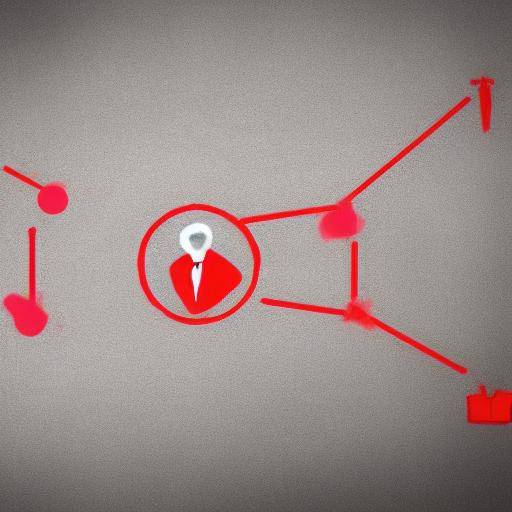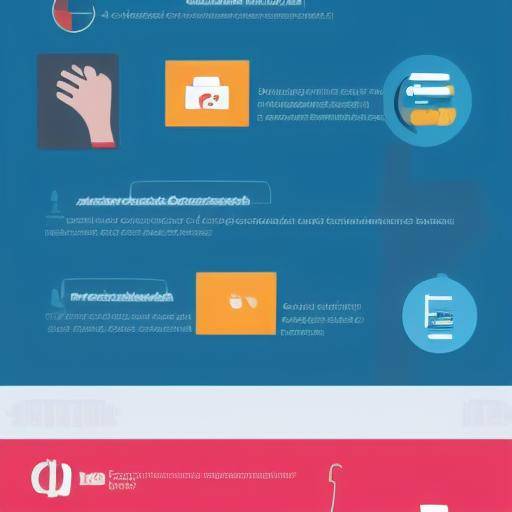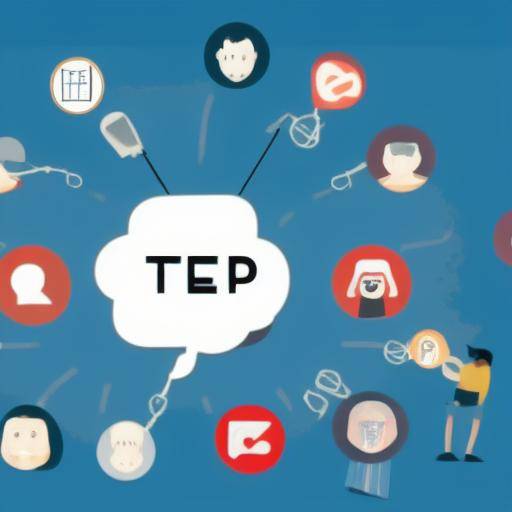
Introduction
Throughout history, human beings have lived in societies with complex dynamics that often lead to conflicts. The effective resolution of these conflicts is vital to maintaining healthy and productive relationships, both in the personal and professional spheres. In this article, we will explore the importance of positive feedback in conflict resolution, as well as its impact on interpersonal relationships. From its origins to future trends, we will thoroughly analyze how this practice can transform the way we address disagreements and strengthen our connections with others.
History and background
Conflict resolution is a concept that has existed throughout the history of humanity. From the first communities to the complex contemporary societies, dispute management has been instrumental in preserving harmony and social order. In ancient cultures, courts and mediation systems were used to resolve conflicts of diverse proportions, and these practices have continually evolved to date.
Positive feedback, for its part, has gained relevance with the advancement of psychology and social sciences, being recognized as a powerful tool to boost growth and personal development. Its implementation in conflict resolution has proved to be beneficial, as it allows the identification and strengthening of the positive aspects of conflict situations, thus promoting open and constructive communication between the parties involved.
In-depth analysis
Positive feedback not only influences how we address conflicts, but also has a significant impact on the quality of our personal relationships. By providing praise and genuine recognition, it fosters a climate of trust and mutual empowerment. Moreover, its effect on self-esteem and individual motivation should not be underestimated, as it can be a catalyst for personal and professional growth.
Effective implementation of positive feedback in conflict resolution requires active listening skills, empathy and assertiveness. These skills are fundamental to understanding the needs and concerns of conflict parties, which in turn facilitates the generation of mutually beneficial solutions. By integrating positive feedback into this process, an enabling environment for open dialogue and the search for commitments that strengthen long-term relationships is created.
Comprehensive review
Positive feedback and its influence on conflict resolution have been the subject of numerous studies and analysis. Recent research has revealed that its impact goes beyond mere dispute management, extending to the promotion of healthy organizational cultures and the prevention of future conflicts. Moreover, its application in family and community settings has proved to be an effective tool for improving social cohesion and peaceful coexistence.
In exploring best practices in the implementation of positive feedback in conflict resolution, strategies focused on building language, recognition of achievements and efforts, and promotion of collaboration and teamwork are highlighted. These approaches have proven to generate results consistent with the reduction of tensions and the promotion of more harmonious and productive relationships.
Comparative analysis
By comparing conflict resolution, positive feedback and personal relationships, significant interconnections are shown. Positive feedback, in particular, acts as a bridge between effective management of disagreements and strengthening interpersonal connections. It is through the consistent practice of this feedback that builds solid relationships and overcomes the obstacles that could put their stability at risk.
Conflict resolution emerges as an essential component in promoting healthy interactions, while personal relationships represent the context in which both conflict resolution and positive feedback are manifested and nurtured. This interrelationship highlights the importance of addressing conflicts from a holistic perspective, considering not only immediate results, but also the long-term impact on human relations.
Practical advice and recommendations
In trying to integrate positive feedback into conflict resolution, it is essential to cultivate an environment of openness and mutual understanding. It is recommended to practice empathy and active listening, as well as focus on solutions and identification of areas of agreement. Genuine expression of recognition and gratitude can also be a powerful tool to promote positive feedback in all aspects of life.
Furthermore, the establishment of formal and informal mechanisms for constructive feedback can contribute significantly to conflict resolution and the strengthening of personal relationships. These mechanisms may include regular feedback sessions, the implementation of recognition policies in working environments and the promotion of a climate of trust and transparency in family and community contexts.
Industry perceptions and expert opinions
The views of experts in psychology, conflict management and organizational development support the fundamental value of positive feedback in conflict resolution. The general consensus is that positive feedback not only facilitates effective management of disagreements, but also contributes to the emotional well-being and personal growth of those involved in the process.
Case studies and applications in real life
Numerous cases have been documented in which the integration of positive feedback has transformed the way conflicts are addressed and resolved. From business environments to family contexts, the testimonies of individuals and organizations highlight the positive impact that this practice can have on the quality of relationships and overall productivity.
Future trends and predictions
As awareness of the importance of positive feedback in conflict resolution continues to grow, its implementation is expected to be more broadly integrated in various areas of life. In addition, with the advancement of technology and communications, digital tools are facilitating the implementation and monitoring of effective positive feedback strategies, which could have a significant impact on how we address interpersonal challenges.
Conclusion
Positive feedback, being a powerful tool to promote conflict resolution and strengthen relations, represents a fundamental pillar in the development of harmonious and collaborative societies. Its impact transcends conflict scenarios, generating a positive impact on emotional well-being and personal development. By cultivating a culture of constructive feedback, we can pave the way for a world where conflicts are addressed in a respectful and constructive manner, thus enriching our social fabric.
Frequently asked questions
1. How can I give positive feedback in conflicting situations?
Positive feedback in conflicting situations can be provided by focusing on behavior and not on the person, recognizing efforts and showing empathy. It is crucial to maintain a constructive tone and focus on solutions.
2. What is the role of positive feedback in the working environment?
Positive feedback in the working environment strengthens the team's morals, drives performance and fosters a climate of trust and collaboration. It helps build solid relationships between colleagues and leaders, promoting a positive working environment.
3. How does positive feedback contribute to conflict resolution in family relationships?
In family settings, positive feedback can reduce tension and promote more effective communication. Recognizing and commending the positive aspects of family members ' actions can strengthen ties and foster a more harmonious environment.
4. What are the long-term benefits of integrating positive feedback into conflict resolution?
The integration of positive feedback into conflict resolution can promote stronger relationships, generate a climate of confidence, improve self-esteem and foster constructive dialogue. In the long term, its implementation can prevent future conflicts and strengthen cohesion in different areas of life.
5. How can I incorporate positive feedback into my daily life?
Incorporating positive feedback in everyday life involves cultivating an attitude of recognition and gratitude. Express genuine praise, show appreciation for the efforts of others and promote positive dialogue are some ways to integrate this practice into everyday interactions.
6. What role does positive feedback play in building healthy relationships?
Positive feedback is crucial in building healthy relationships, as it strengthens confidence, enhances self-esteem and promotes an environment of mutual understanding. By highlighting and celebrating the positive aspects, it contributes to the creation of strong and lasting links.
Concluding, positive feedback emerges as a key resource in conflict resolution and strengthening relationships. By recognizing its value and practising its application in various contexts, we can play an active role in creating more harmonious and empowering environments.






















































